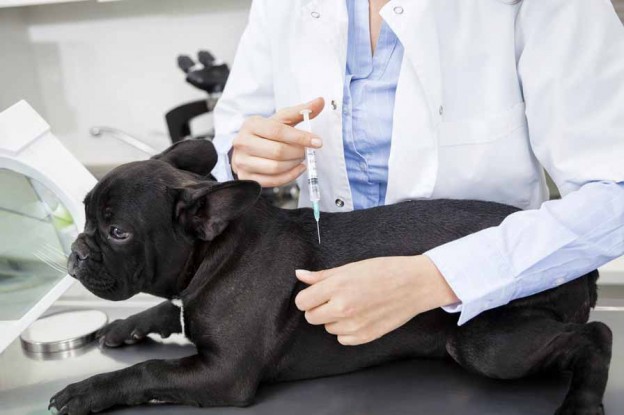
Kylie Baracz discovers why it’s important to prevent heartworm in your pet.
You may have heard of heartworm, but what is it and how do dogs get it? Heartworm is a parasitic worm that is transferred from one dog to the next by mosquito bites. And, according to Dr Ian Murdoch from Pennant Hills Veterinary Hospital, dogs don’t transfer it to each other.
“Dogs don’t catch it from each other by meeting at the park or coughing on each other,” he says. “One mosquito bite is enough to transfer the infection. Therefore dogs are not safe just because the owner keeps them away from other dogs.”
Heartworm, although a worm, is different to those that are intestinal. This particular worm travels through the bloodstream to the heart and pulmonary arteries. It can physically obstruct the flow of blood through the right side of the heart and damage the valves. However, Dr Murdoch says the most significant damage happens to the lungs.
“Because the worms irritate and block the arteries of the lungs, parts of the lungs become inflamed, die and scar,” he explains.

Symptoms
Because of this potential damage to the lungs, the most common symptoms relate to this area. Signs to look out for include:
• Coughing — the most common sign
• Poor energy levels when exercising
• Getting tired easily and puffing more.
“In locations where heartworm is very common, actual acute heart and liver disease is possible,” says Dr Murdoch. “This occurs when many worms mature at once in the heart and obstruct the flow of blood. These dogs become severely ill very quickly and need emergency care.”
Prevention
Due to the different way heartworms live, normal intestinal worming won’t help prevent this disease. To prevent heartworm, Dr Murdoch recommends that owners use a special heartworm-specific preventative medicine.
“This is sometimes supplied with an intestinal wormer, but owners need to check carefully that heartworm prevention is included in the wormer they use,” says Dr Murdoch. “Prevention can be given in chewable treats, tablets, injections (once a year) and even back of the neck spot-on-type doses.”
It’s important to make sure your dog is up to date with its preventative treatment as it’s much easier to prevent heartworm than treat it. “It is important to prevent heartworm because the prevention is so simple and virtually 100 per cent effective and the disease is so debilitating and dangerous,” advises Dr Murdoch. “Also, who can be sure their dog hasn’t been bitten by a mosquito?”

Treatment
So what should owners do if they suspect their dog has heartworm? “They can go to their regular vet and discuss the symptoms they are seeing and have an examination,” says Dr Murdoch. “Then it is simply a matter of having a small amount of blood taken and a very reliable quick test performed. Often this can be done at the vet hospital but sometimes the blood needs to be sent to the laboratory.
“Usually the dog will need another test six months after it has been taking preventative drugs just to cover the rare case of heartworm being contracted too close to the first test to be detectable. Occasionally the vet may also recommend X-rays.”
The tests can pick up heartworm in dogs before they are even sick so a heartworm test can give you peace of mind and prevention is easy.
If your dog is found to have heartworm, it will need to be hospitalised for a course of special injections, different to those that prevent heartworm. They can be damaging if not monitored properly.
“How much supportive care and hospitalisation the dog will need will depend on how unwell the dog is when treatment commences,” says Dr Murdoch. “Heartworm disease is much less common than it was when we only had daily heartworm tablets, so people shouldn’t fear the worst automatically. Just go to your vet and discuss your concerns.”
Advances in treatment
“Quite a few years ago the arsenic-based treatment drug was improved so that there were fewer side-effects,” says Dr Murdoch. “However, dogs handle treatment much better if the condition is detected and treated early before the animal’s general health is damaged.”







